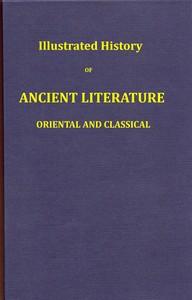|
|
Read this ebook for free! No credit card needed, absolutely nothing to pay.Words: 111958 in 49 pages
This is an ebook sharing website. You can read the uploaded ebooks for free here. No credit cards needed, nothing to pay. If you want to own a digital copy of the ebook, or want to read offline with your favorite ebook-reader, then you can choose to buy and download the ebook.

: Metzerott Shoemaker by Woods Katharine Pearson - Shoemakers Fiction; German Americans Fiction; Christian socialism Fiction@FreeBooksThu 08 Jun, 2023 PREFATORY. I first read Charles Darwin's "Origin of Species" in the library of my sainted uncle, John Schaller, at New Ulm, Minnesota, in 1892. I did not comprehend all of it then, a cause, to me, of considerable chagrin, for which I later found some consolation in the opinion of Dr. Frederick Lynch, who pronounces Darwin's epochal work "one of the two most difficult books in the English language." But like many others, I understood enough of Darwin's book to catch glimpses of the grandeur of the conception which underlies its argumentation. It was then that my beloved uncle, out of that wide and accurate reading which so frequently astonished his friends, and with that penetrating dialectic of his, opened my eyes to certain fallacies in Darwin's argument, especially to the fatal weakness of the chapter on Instinct. The reading of St. George Mivart's book "The Genesis of Species" later convinced me of the accuracy of my uncle's judgment. But the fascination of the subject persisted, and for a time Herbert Spencer's "Synthetic Philosophy," by the comprehensiveness of its induction and its vast array of data, exercised its thrall. Alfred Russel Wallace's "Darwinism," Huxley's "Lectures on Evolution," Tyndall's "The Beginning of Things," Grant Allen's "The Evolutionist at Large," Eimer's "Orthogenesis," Clodd's "Story of Creation," occupied me in turn, until the apodictic presentation of John Fiske's Essays on Darwinism, no less than the open and haggard opposition to Christianity which prevails in Huxley's "Science and Hebrew Tradition" and in Spencer's chapters on "The Unknowable" , caused a revulsion of sentiment,--the anti-religious bias of evolution standing forth the clearer to my mind, the longer I occupied myself with the subject. An an excursus in the subject of Pedagogy, I have treated in my Seminary lectures the past years, under the head of natural sciences, the argument against evolution, and the outlines of these lectures have furnished the framework for the present volume. It is hoped that especially our young men and women who take courses at our universities will examine the case against the fascinating and in some respects magnificent conception of evolution as this case is presented in the following chapters. I realize that they, as well as intelligent readers generally, may not meet with confidence the statements of a theologian on a scientific question, least of all when he essays to treat such a question from the standpoint of science. He is presumed to be at home in theology, but a stranger in the domain of geology, astronomy, and biology. It is for the purpose of obtaining a hearing at all that these introductory remarks are written. But the argument must stand on its own merits. The writer will now retire to the background. The facts shall speak. TH. G. EVOLUTION. The doctrine of Evolution briefly stated, is as follows: That in some infinitely remote period in the past, how or from whence science does not affirm, there appeared matter and force; that within matter and in association with force there also appeared a primordial cell, how or from whence no man knoweth, in which there was a spark of life; and that from this cell all things animate have emerged, being controlled by certain laws variously stated by various evolutionists; that these laws in connection with the modifying influences of environment account for and explain the various species that have existed in the past and now exist upon earth, man included. That there are no gaps in the process but that there is demonstrable a steady ascent from lower to higher forms of life, until man is reached, the acknowledged highest product of evolution. The extreme evolutionists hold that all the power and potency of the universe was stored up in that primordial cell, and that all things have been worked out without any superintending agency other than the forces resident in matter. Every operation of God is ruled out, or deemed unnecessary. This is sometimes called atheistic evolution. The theistic evolutionist makes place for God in the beginning and all along the line of development, as overlooking the process, perhaps reinforcing and to a certain extent directing the energy, but not interfering with the fixed law or rule of evolution. According to theistic evolution, God did not create plants and animals as separate species but created matter as a crude form and placed it under certain laws, by which this matter was, during untold ages, gradually evolved into worlds. That out of this matter, called inorganic, plants came into existence, from some germ or property existing in matter. The origin of animal life is explained in various ways by the so-called theistic evolutionists. Some hold that the primordial plant life contained potentially the lowest and simplest principles of animal life, and from it the simplest animal forms were evolved; that from these latter were evolved forms a little higher, until, after long ages, all the gradations were passed through until man, the highest form, was the result. Others believe that there is such an essential difference between plants and animals that the latter could not have come from the former, that there must be a new start on the animal side of life. Therefore they claim that when the evolutionary development of matter reached a certain stage, God appeared on the scene and endowed certain forms with the principle of animal life, in its lowest elements. These lowest forms of animal life then entered upon a series of evolutionary growth, each lower form evolving one a little more complex, each series gaining the use of and developing organs which existed essentially in the lower form but were small, imperfect, and useless, because not needed. Thus the hand and arm in man are structurally or essentially the same as the leg of the brute, the wing of the bird, the flipper of the whale, and the fin of the fish; and the endeavor to adapt itself to the water caused the bird to develop a fin, as by a similar process the fore-leg of brutes developed into the human arm and hand. For our present consideration, we need not distinguish between atheistic and theistic evolution, as the latter is subject to the fundamental objections urged against evolution in general, and is, like atheistic evolution, without a single fact to support it and in direct contradiction of all that is known of the laws in operation now, and as far back as knowledge penetrates. Moreover, so-called "theistic" evolution is universally approved by infidels and skeptics and is used by them as a favorite means of assault on revealed Truth. Historical Review. While in our own day the names of certain English and German scientists are inseparably connected with a history of this hypothesis, its roots are found far back in the early ages of Greek philosophy. A theory of evolutionary development was first propounded by Greek thinkers living about 600 years B. C. The human mind is ever on the search for unifying principles, principles which account for entire groups of natural phenomena, and not for isolated phenomena only. The Greek mind sought a principle by which to account for the manifold and diverse forms of life in nature. Whence do all things come? How have they come to be what they are? Questions about the nature of the universe in which we live have been asked from the very beginning. The moment the human mind began to reflect the notion that the vegetation which covers the earth, the animals which inhabit it, the rocks and hills, the mountains and valleys which constitute its physical features, may have undergone changes in past time, and that all the phenomena which constitute the animal, vegetable and mineral worlds as they now exist, are but modifications of other forms which have had their day and their philosophy, the idea of development became prominent. The early Greek philosophers were the first to attempt answers to these problems. Many of them held that all things natural sprang from what they called the original elements--fire, air, earth, water. Anaximander held that animals were begotten from the earth by means of heat and moisture; and that man was developed from other beings different in form. Empedocles had a fantastic theory, viz., that the various parts of man and animals at first existed independently, and that these--for instance, arms, legs, feet, eyes, etc., gradually combined--perhaps after the manner in which automobiles are assembled; and that these combinations became capable of existing and even of propagating and reproducing themselves. Anaxagoras was of opinion that animals and plants sprang from the earth by means of germs carried in the atmosphere which gave fecundity to the earth. Aristotle held opinions not very unlike those of our own day. All of which goes to show that speculation about the origin of the universe and the why and wherefore of living things did not come into existence with the Darwinian hypothesis and that the doctrine of descent with modification as an explanation of all biological phenomena antedates by over two thousand years the publication of the "Origin of Species." "But, Anna--?" Free books android app tbrJar TBR JAR Read Free books online gutenberg More posts by @FreeBooks
: A Marriage in High Life Volume I by Scott Lady Caroline Lucy Bury Charlotte Campbell Lady Editor - Great Britain Social life and customs 19th century Fiction; Marriage Fiction@FreeBooksThu 08 Jun, 2023

: Hints to Travellers Scientific and General Vol. 2 Tenth edition revised and corrected by Royal Geographical Society Great Britain Reeves Edward Ayearst Editor - Topographical surveying; Scientific expeditions Handbooks manuals etc.; Spherical astronomy@FreeBooksThu 08 Jun, 2023
|
Terms of Use Stock Market News! © gutenberg.org.in2025 All Rights reserved.






